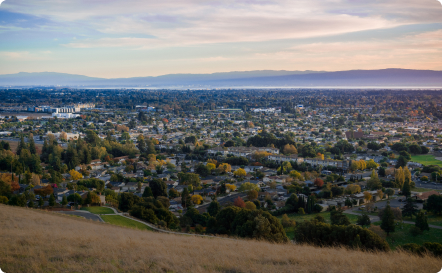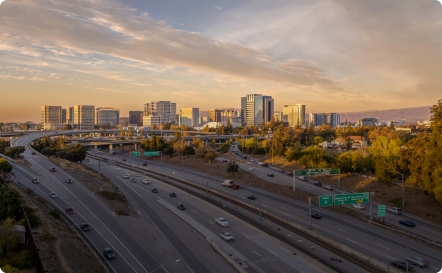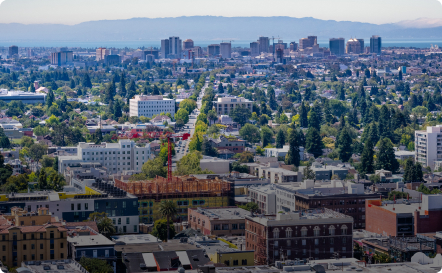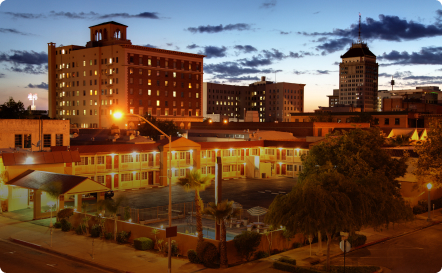When the Unthinkable Happens, You Need a Specialized Advocate
One moment, you or your loved one was embarking on what should have been a routine helicopter flight. The next, your world was shattered by an unthinkable aviation disaster. Now, you’re facing:
- Catastrophic injuries or the loss of a loved one
- Overwhelming medical bills or funeral expenses
- Loss of income and an uncertain financial future
- Complex aviation regulations and investigations
- Powerful aircraft manufacturers and insurance companies
Helicopter accidents are not just another personal injury case. You need an attorney with specialized expertise.
GJEL: Your Expert Guide in Helicopter Accident Cases
At GJEL Accident Attorneys, we bring decades of experience in aviation law to your case. We understand the unique challenges of helicopter accident claims, from dealing with the National Transportation Safety Board (NTSB) to navigating the complexities of aviation engineering.
Why Choose GJEL for Your Helicopter Accident Case?
- Specialized Expertise: We have in-depth knowledge of aviation law and helicopter mechanics.
- Proven Track Record: We’ve secured multi-million dollar settlements in complex aviation cases.
- Resources to Win: We collaborate with top aviation experts and accident reconstructionists.
- Personal Attention: You’ll work directly with our experienced attorneys, not junior associates.
Your Path to Justice and Recovery
- Free Consultation: Share your story with us. We’ll listen and explain your legal options.
- Comprehensive Investigation: We’ll work with aviation experts to determine the cause of the accident.
- Strategic Case Building: We’ll gather all necessary evidence, including flight data, maintenance records, and witness statements.
- Aggressive Negotiation: We’ll fight against aircraft manufacturers, operators, and insurance companies for fair compensation.
- Trial Preparation: While many cases settle, we prepare every case as if it’s going to trial to ensure the best possible outcome.
Real Stories from Aviation Disaster Survivors
“After losing my husband in a helicopter crash, I felt lost and overwhelmed. GJEL not only secured a settlement that provided for our family’s future, but they also helped me understand what happened and why. Their expertise in aviation law was invaluable.” – Sarah L., California
Time is Critical in Helicopter Accident Cases
Aviation investigations move quickly, and evidence can disappear. The sooner we can start on your case, the stronger it will be.
Contact GJEL Helicopter Accident Attorneys Today
- Phone: 1-866-249-2141
- Hours: Available 24/7 for emergencies
Call now for your free consultation. We’re here to help, day or night.
Remember, you pay nothing unless we win your case. Let us handle the complexities of aviation law while you focus on healing.
You’ve Survived the Unthinkable. Let Us Fight for Your Future.
At GJEL, we’re more than just your attorneys – we’re your advocates in the complex world of aviation law. We’re ready to stand up to big corporations and fight for the justice and compensation you deserve.
In certain situations, helicopters have an advantage over airplanes, such as in search and rescue scenarios because they are able to hover, descend and ascend in a vertical manner, and do not require a runway. Unfortunately, whether a helicopter is being used in an important rescue mission or for a leisurely sightseeing tour on a vacation, people do suffer serious physical injuries following helicopter accidents throughout the United States.
Like airplanes, helicopters are very complex forms of aircraft which must undergo routine maintenance by skilled professionals to ensure that they are safe for flight. Also due to their complexity, helicopters must be operated by skilled pilots who have been successfully trained in a helicopter flight program, and have the proper certifications and licenses.
Causes of Helicopter Crashes
There are a number of factors that must be considered when investigating a helicopter accident, such as:
- Mechanical failure
- Engine failure
- Defective parts
- Tail rotor failure
- Pilot error
- Poor weather conditions
- Improper maintenance
As a helicopter accident victim, you have the right to file a lawsuit against the negligent helicopter operator, manufacturer of a faulty helicopter part, or any other person who is responsible for your pain and suffering. In helicopter crash litigation, defendants have several advantages over plaintiffs. These defendants will have immediate access to both the crash site and the wreckage, and they will retain defense counsel to protect their interests.
Aviation litigation, including that of a helicopter accident case, is a very complicated area of law and requires the representation and guidance of an experienced and aggressive helicopter accident attorney. The GJEL Helicopter Accident Injury Lawyers have years of experience working alongside some of the best aviation experts in the country. We’ve also helped many families and victims of helicopter crashes get the best results possible from a claim. Whether your helicopter accident injury took place while the helicopter was in the air or on the ground, the distinguished aviation accident lawyers at GJEL may be able to recover for you the monetary compensation that you deserve.
Common Causes of Helicopter Crashes
Helicopters are a vital mode of transportation in many fields, including military, medical, and commercial. However, they can be more prone to accidents than other aircraft due to their unique design and operational characteristics.
Helicopter crashes can have catastrophic consequences, leading to loss of life and property damage. In this article, we will explore the various factors that contribute to helicopter crashes and examine ways to prevent them.
Pilot Error
Pilot error is one of the most common causes of helicopter crashes. Pilots can make mistakes due to fatigue, distraction, lack of training, or poor decision-making. In this section, we will examine some of the most common pilot errors that lead to helicopter crashes.
Fatigue
Pilot fatigue is a major problem in the aviation industry. Fatigue can impair a pilot’s judgment, reaction time, and situational awareness, making them more prone to errors. We will discuss the factors that contribute to pilot fatigue and ways to mitigate it.
Distraction
Distractions such as communication with air traffic control, electronic devices, or other crew members can divert a pilot’s attention away from critical tasks. We will explore the various distractions that pilots face and the impact they can have on flight safety.
Lack of Training
Insufficient training can lead to pilots not being able to handle emergency situations or being unfamiliar with the helicopter’s systems and limitations. We will discuss the importance of adequate training and ongoing education for pilots.
Poor Decision-making
Poor decision-making can result in pilots taking unnecessary risks or making inappropriate judgments about weather conditions, fuel levels, or maintenance issues. We will explore the factors that influence decision-making and ways to improve it.
Mechanical Failure
Mechanical failure can occur due to a defect in the helicopter’s design or a maintenance issue. In this section, we will examine some of the most common mechanical failures that lead to helicopter crashes.
Engine Failure
Engine failure is a significant risk in helicopters, as they rely on a single engine to stay airborne. We will discuss the various factors that contribute to engine failure and ways to prevent it.
Transmission Failure
Transmission failure can occur due to wear and tear or improper maintenance. We will explore the impact of transmission failure on helicopter safety and ways to prevent it.
Structural Failure
Structural failure can occur due to metal fatigue, corrosion, or damage caused by external factors such as bird strikes or debris. We will examine the various types of structural failure that can lead to helicopter crashes and ways to prevent them.
Environmental Factors
Environmental factors such as weather conditions, terrain, and obstacles can pose significant risks to helicopter safety. In this section, we will examine some of the most common environmental factors that lead to helicopter crashes.
Weather Conditions
Weather conditions such as fog, rain, or wind can impair visibility and make flying more difficult. We will discuss the impact of weather conditions on helicopter safety and ways to mitigate the risks.
Terrain
Terrain can pose significant risks to helicopter safety, particularly in areas with mountainous or uneven terrain. We will examine the various terrain hazards that can lead to helicopter crashes and ways to mitigate them.
Obstacles
Obstacles such as power lines or tall buildings can be difficult to detect and avoid, leading to collisions. We will explore the various types of obstacles that pose a risk to helicopter safety and ways to prevent collisions.
Why You Need an Attorney After a Helicopter Crash
Helicopter accidents, while less common than car accidents, can be devastating and result in severe injuries or fatalities. The complex nature of these accidents requires the expertise of a personal injury attorney who is well-versed in aviation law and accident investigation. In this article, we will discuss the reasons why hiring a personal injury attorney is crucial after a helicopter accident.
- Thorough Investigation: Helicopter accidents often involve multiple factors, such as mechanical failure, pilot error, weather conditions, or improper maintenance. A personal injury attorney with experience in helicopter accidents will have the knowledge and resources necessary to conduct a thorough investigation, identify the responsible parties, and gather essential evidence to support your case.
- Navigating Complex Regulations: Aviation law, which governs helicopter operations, is a specialized field with numerous regulations and guidelines. An experienced personal injury attorney will understand these regulations and be able to identify any violations that may have contributed to the accident. This expertise is crucial in building a strong case against the responsible parties.
- Dealing with Insurance Companies: Insurance companies often try to minimize payouts after an accident by disputing liability or downplaying the extent of the victim’s injuries. A personal injury attorney will know how to negotiate with insurance companies effectively, ensuring that you receive the compensation you deserve for your medical expenses, lost income, and other damages.
- Determining Liability: Helicopter accidents can involve multiple liable parties, such as the pilot, the helicopter owner, the manufacturer, or maintenance providers. A skilled personal injury attorney will be able to identify all responsible parties and hold them accountable for their negligence, increasing the likelihood of a successful outcome in your case.
- Pursuing Compensation: Helicopter accident victims may be entitled to various types of compensation, including medical expenses, lost wages, pain and suffering, and more. An experienced personal injury attorney will have the expertise to accurately assess the full extent of your damages and pursue the maximum compensation you deserve.
- Advocacy and Support: The aftermath of a helicopter accident can be emotionally and physically draining for victims and their families. By hiring a personal injury attorney, you can focus on your recovery while your legal representative handles the complex aspects of your case, providing you with the support and advocacy you need during this challenging time.
If you or someone you love was in a helicopter accident contact our attorneys for a free case review today
At Gillin, Jacobson, Ellis, Larsen & Lucey, our helicopter accident injury lawyers will provide you with aggressive legal representation and accurate legal advice to assist you throughout your case.
Please call 1-855-508-9565 to speak with an experienced attorney at GJEL if you or a loved one has been injured in a helicopter accident. We provide free consultations, and we’re paid only when we win your claim. You’ll pay no fees if we don’t obtain a verdict or settlement for you.
Please visit the Contact Us page to find our local office nearest you.
Visit An Office Nearby
Last Updated on 04/14/23 by Andy Gillin
No links found.



















